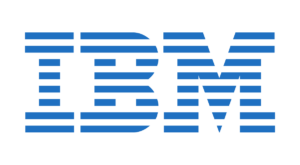Try our free Powerpoint lesson Plans
The lesson PowerPoints are great to use with any year group – easy to understand with passages written in code for them to practise using the decryption methods, with little input needed from the teacher. Would recommend – especially if you are starting a Codebreaking club before the competition begins like me.
Sam Barlow, Queen Anne’s School, Caversham
Lesson 1, the Caesar shift cipher and pattern detection
The simplest cipher, but a great introduction to both the implementation and cracking of a code.Powerpoint slides
Lesson 2, frequency analysis
Cracking substitution ciphers depends on finding hidden patterns in the text. Frequency analysis is your friend and is where the mathematics begins.Powerpoint slides
Lesson 3, the affine shift cipher
This is an introduction to modular arithmetic and builds on the first two lessons.Powerpoint slides
Lesson 4, breaking the affine shift cipher using modular inverses
A look at the mathematics behind the cipher, how to solve equations in modular arithmetic, and how that helps us break the affine shift cipher using inverses in modular arithmetic.Powerpoint slides
Lesson 5, the keyword cipher
Examines how to implement a much richer family of field ciphers based on an agreed keyword, and considers how to crack one in which the word structure is given, using cribs.Powerpoint slides
Lesson 6, cracking a keyword cipher using frequency analysis and cribs
This lesson takes what we know about frequency analysis and cribs and uses it to crack a much harder example of a keyword cipher in which the word structure is hidden.Powerpoint slides
Some images you can use for a cipher challenge classroom display
Why not take a look at some of our recent competitions?
Some useful resources for advanced codebreakers
CUTTING EDGE CRACKING
Some of the winners from the 2016 competition kindly wrote up how they tackled the final challenge that year. If you are wondering what it takes to decipher a message encrypted with a brand new code then this might give you some idea. The challenges in the early rounds of the of this year’s competition won’t be anything like as difficult, but as for the later ones … Read more
PROGRAMMING FOR CRYPTOLOGISTS, 101
A fantastic short introduction to programming for beginners interested in using computers to break codes and ciphers.
Julian Bhardwaj, long time participant in the National Cipher Challenge and finalist in the UK Cyber Security Championship, wrote these notes and kindly offered them to us.
MORE CUTTING EDGE CRACKING
One of our competitors, Cribbage, from the 2018 competition kindly wrote up how they tackled the final challenge last year. If you are wondering what it takes to decipher a message encrypted with a brand new code then this might give you some idea. The challenges in the early rounds of the of this year’s competition won’t be anything like as difficult, but as for the later ones…
Enigmatic musician
The composer Elgar is well known to have had a penchant for mystery, and even enjoyed a little codebreaking in his spare time. The famous German cipher machine was named after his Enigma variations, but most intriguing was his invention of a private cipher used to communicate with a friend, the so-called Dorabella cipher. You can read more about it at http://ciphermysteries.com/other-ciphers/the-dorabella-cipher
The Code trilogy
Our good friend Jo Welch has written some books that we think you might enjoy. Head over to Amazon to take a look and sign up on Twitter to follow her.
The National Cipher Challenge Poet Laureate, Harry Baker
The world’s second favourite Harry (sorry Harry, I think Potter might just about edge you) shows the world that embracing your inner maths nerd is a noble and admirable thing. If you like rap, poetry or maths then there is something here for you. If you like them all you will be in heaven!
Careers
There is a rich a variety of careers for mathematicians in just about every aspect of the economy. Here are a few that might appeal to you if you have enjoyed the Challenge
GCHQ have a number of technical roles which require strong mathematics skills, an enquiring mind and dedication. You can find out more about them here.
The Pringle can Enigma Machine
We first designed the Pringle can Enigma machine as an aid for competitors to crack our version of a Russian Fialka cipher back in 2005 (Harry’s adventure on the submarine Michael 5, which happened just before this year’s story!). The image below is a recent version of that based in part on the elegant Franklin-Heath Enigma machine, that you can read about on their website. You will find full instructions there on how to build your own machine, which is really no harder to make than a Caesar cipher wheel, but it gives you pretty much the full power of the Enigma cipher for the cost of a tube of Pringles!









